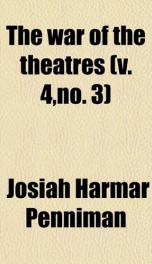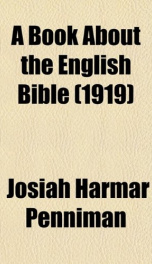the war of the theatres

Purchase of this book includes free trial access to www.million-books.com where you can read more than a million books for free. This is an OCR edition with typos. Excerpt from book: III. HISTRIOMASTIX AND THE CASE IS ALTERED. The first attack on Marston by Jonson is found in Every Man out of his Humour. Two characters, Clove and Orange, are introduced for the sole purpose of " talking fustian " and of ridiculing certain unusual words used by Marston in The Scourge of Villanie and Histriomastix ;1 the latter is mentioned by name,2 and, as such mention amounts to ridicule, we are led to examine the play with care to see what there may be in it of a nature to anger Jonson. Histriomastix, as we have it, seems to be based on an older play, the purpose of which was to show how the pursuit of learning was neglected by the people, who preferred other pleasures. The character in it who defends the pleasures of learning is Chrisoganus ; and in reading the play we find many things in which the scholar, Chrisoganus, resembles Ben Jonson. There is in the play a severe attack on some playwright in the person of Posthast. There are two theories concerning the authorship of this play. The usually accepted theory, advanced and supported by Simpson, is thus stated : " The drama, as it has come to us, is manifestly the work of two hands and of two times. This is proved both by the confusion of the sub-play in Act II., and by the alternative endings of the play. As originally written, 1 Under the general heading " Unknown Authors," Langbaine has this entry : "Histriomastix, or The Player Whipt; printed quarto, London 1610. This play was writ in the time of Queen Elizabeth tho' not printed till afterwards; as appears by the last speech spoken by Peace to Astraea, under which name the Queen is shadowed." An Account of the English Dramatick Poets, 1691, p. 532. 2 Every Man out of his Humour, III. I. The passage is discussed below. the sub-play was that of the P...
Users who have this book
Users who want this book
What readers are saying
What do you think? Write your own comment on this book!
write a commentGenre
if you like the war of the theatres try:
Other books by this author
Do you want to read a book that interests you? It’s EASY!
Create an account and send a request for reading to other users on the Webpage of the book!



